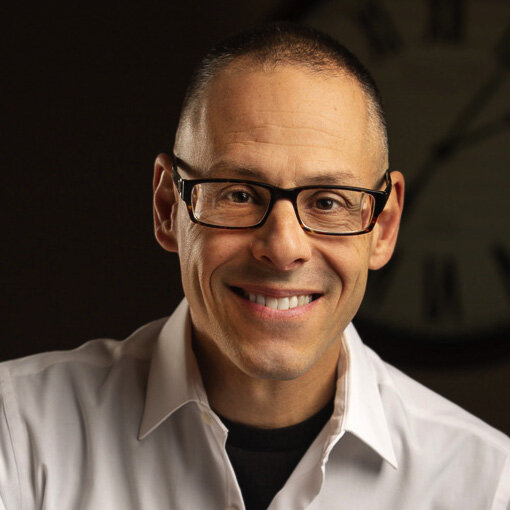The Elusiveness of "Why?"
My wife just booked her flight to Missouri.
If given the option, we would not have chosen the last 18 months and the struggles they brought. Like an awkward family reunion, we were forced to endure the company of doctors, oncologists and surgeons. Emotions exposed to embarrassing degrees, the last year-and-a-half was more tenderizing than most people can understand. But now, as we approach Christmas, we’re confronted with a new dynamic.
Along the gravel shore, he walked with head low as if he were inventorying stones. With not much else left in the hallow of his heart, he heeded the call of the lake. With net and oar and quiet comrades, he returned to the lapping of the waves and the stench of fish in the middle of the night.
For many of us, we never know the heart-satisfying reason why things happen, especially debilitating events. I know many, including myself, nearly drown in the depths of quandary attempting to make sense of it all. We’d prefer to do without the pain brought on by illnesses, joblessness, natural disaster or wayward children. In the midst of lacking answers to the nagging question, “Why did this happen?” we are called to a very noble task.
"Why?" That question can leave us cold and bewildered because it often doesn't have an answer. But in the midst of confusion and pain, we are called to a noble task. Snow graces the layers of a Dwarf Hinoki Cypress.
Casting and hauling, then casting again, the nets never filling with fish for the men bobbing in the boat. Then, ready to abandon their efforts with the sun rising on their faces, a familiar voice is heard, “Cast the net on the other side!” Perhaps desperate or just delusional, the seven obliged and heaved the net - as if fifteen feet would make a difference. But this time, retrieval is far different than the several hundred times previous. On the verge of splitting, the net snags fish upon fish. And in this miracle, the eyes of the seven are opened to the identity of the voice. Peter, in his reactive manner, dives into the lake, waiting for neither the fish nor friend to meet Jesus.
The Apostle Peter's life was indelibly marked with his triple denial of Jesus. But beyond the public humiliation, he was appointed to do something noble. He was called to strengthen his brothers.
“Simon, Simon, Satan has asked to sift you as wheat. But I have prayed for you, Simon, that your faith may not fail. And when you have turned back, strengthen your brothers.” - Luke 22:31-34
Jesus knew Peter would not withstand the trial. And Jesus’ prayer was effective, Peter’s faith did not fail. He stayed with the disciples. He did not walk away. So, why would it even be allowed? Why set someone up for failure and abject humiliation? How could the author of life and love appoint such a thing for Peter? Because Peter’s character could only be shaped with the power of deep pain. A pain that would be used to serve others, build the Church and bless billions.
Like Peter, we are called to a greater purpose; pushing past the dark night of the soul.
Like Peter, we are called to a greater purpose; pushing past the dark night of the soul. When we have squeezed ourselves out from beneath the rock and hard place, we are called to strengthen our brothers and sisters; to intentionally come alongside those whose “why?” may be even more elusive than our own. The pain we face may be unbearable, but it can be used for beautiful things.
And just as God allowed darkness and hell to overshadow Peter, he allows it to overshadow us. The struggle isn't made easier but it is made more purposeful. It doesn’t negate his love; rather it empowers us to love! The Apostle Paul, who faced horrendous difficulties as a proclaimer of Jesus’ deity, wrote this:
Grace and peace to you from God our Father and the Lord Jesus Christ. Praise be to the God and Father of our Lord Jesus Christ, the Father of compassion and the God of all comfort, who comforts us in all our troubles, so that we can comfort those in any trouble with the comfort we ourselves have received from God. For just as the sufferings of Christ flow over into our lives, so also through Christ our comfort overflows. If we are distressed, it is for your comfort and salvation; if we are comforted, it is for your comfort, which produces in you patient endurance of the same sufferings we suffer. And our hope for you is firm, because we know that just as you share in our sufferings, so also you share in our comfort. - 2 Corinthians 1:2-7
The quippy saying is true, “no pain, no gain”.
As my wife packs her bags to board a plane early Christmas morning, she’ll bring gifts to her family. No bows or ribbons, but scars and transformation. She’ll meet with doctors, oncologists and surgeons. She’ll hold the hands of family as she brings the strength she was gifted. The quippy saying is true, “no pain, no gain”. But those gains are to be earnestly offered to others for their strengthening.
The answer to “why?” is elusive, but the power of compassion isn’t. What trial are you facing that would prove to be a powerful help to another? Who around you was forged in the fires of testing that you could rely on for strength? In the end, we often don’t get our “whys” answered, but we can choose to complete a noble task.
